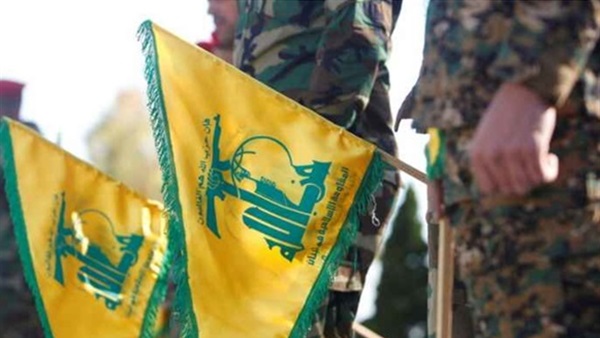Iranian directives: Hezbollah obstructs election of Lebanese president

On October 30, Lebanese President Michel Aoun left the presidential palace in Baabda after six years in power since October 2016, entering the country again into a state of “presidential vacancy”. This is not something new for Lebanon, which is beset by a number of regional and international challenges and is currently witnessing several political divisions and economic and security difficulties, especially in light of the existence of an interim government headed by Najib Mikati, which was reflected in the Lebanese parliament failing for the seventh time to elect a new president.
Parliamentary failure
This comes in the context of the failure of the session held by the Lebanese parliament, headed by Nabih Berri, on November 24 to vote on choosing a new president to succeed Michel Aoun, whose choice came after two years and after 45 parliamentary sessions from entering the country at the time in a state of “presidential vacuum”, so that December will be determined to hold a new session. This failure is due to a group of reasons, including the lack of consensus between the political parties in the parliament, especially since there is no party bloc with a parliamentary majority that would enable it to impose a specific candidate, in addition to the fact that the existing sectarian quota system in Lebanon has always contributed throughout the years to obstructing decisions regarding either the election of the president or the formation of the government.
It should be noted that during the last session of the 128-member parliament, the most prominent candidate who received the highest number of votes, but also did not achieve the two-thirds majority required quorum, was Michel Moawad, the parliamentarian who is supported by the Christian Lebanese Forces party led by Samir Geagea, as he got 42 votes, while the candidate is supposed to receive 86 votes in the first round and 65 votes in the second round.
Hezbollah’s opposition
According to a number of observers, the reason why Michel Moawad did not obtain the necessary votes is the opposition of the Iranian-backed Hezbollah, especially since during the last session there were 50 white papers that were said to be for the representatives loyal to the militia, which claims that all parties and political forces should agree in advance on a specific candidate before going to the parliament to elect him.
On the other hand, there are rumors that Hezbollah Secretary-General Hassan Nasrallah wants a president who has the same positions as the militia and “does not stab the resistance in the back,” according to what he said.
It is also said that these specifications apply to Suleiman Frangieh, head of the Marada Movement party, whose relationship with Hezbollah has recently strengthened in preparation for this moment. Therefore, the pro-Iranian militia is obstructing the voting process to pressure the representatives of the Lebanese Forces to give their votes to Frangieh.
Complicated scene
The question remains whether Iran has anything to do with the presidential vacancy stage that Lebanon is witnessing. To answer this question, Osama al-Hitimi, a researcher specializing in Iranian affairs, explained that it is not conceivable that the political parties will succeed, within a short period of time, in overcoming their differences over the election of a new president, as there is no doubt that the conditions and circumstances that Lebanon witnessed during the election of Aoun were much better than what Lebanon is witnessing now with the exacerbation of the economic crisis and the country’s bankruptcy for months, the Gulf position rejecting what is happening in Lebanon, the diminishing political presence of the Sunni leader Saad Hariri, and many other reasons, which bears an indication of the complexity of the polarization.
Iranian dictation
Hitimi pointed out in an exclusive statement to the Reference that there is no doubt that one of the most important actors in the complexity of this scene is the Lebanese Hezbollah, as the political decisions of the entire Lebanese state depends on its positions and decisions, which by its own admission do not emanate from independence, but rather come at the behest of Iran, which deals with the Lebanese file as one of the cards in managing its conflict with Western powers and negotiations over the nuclear file.







